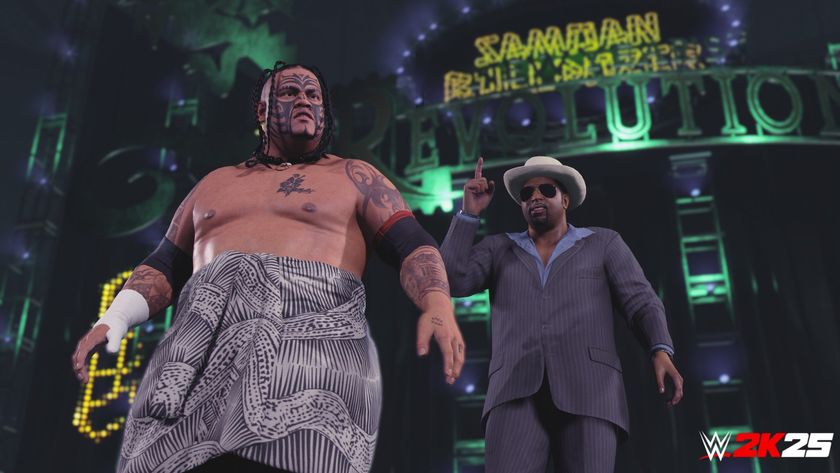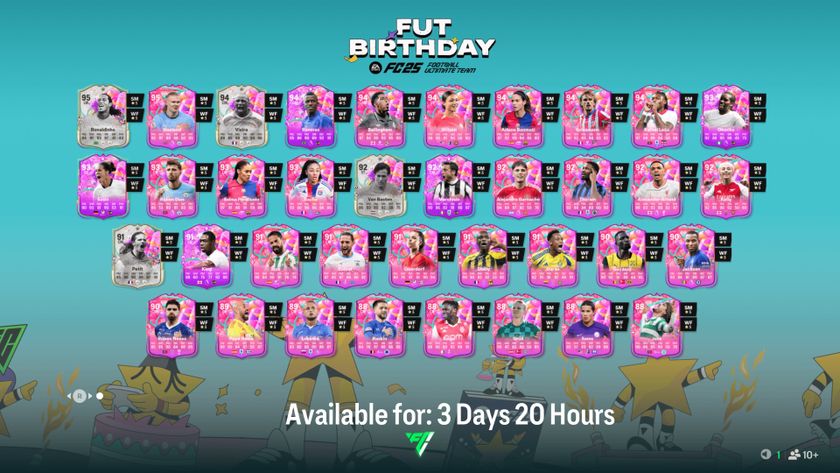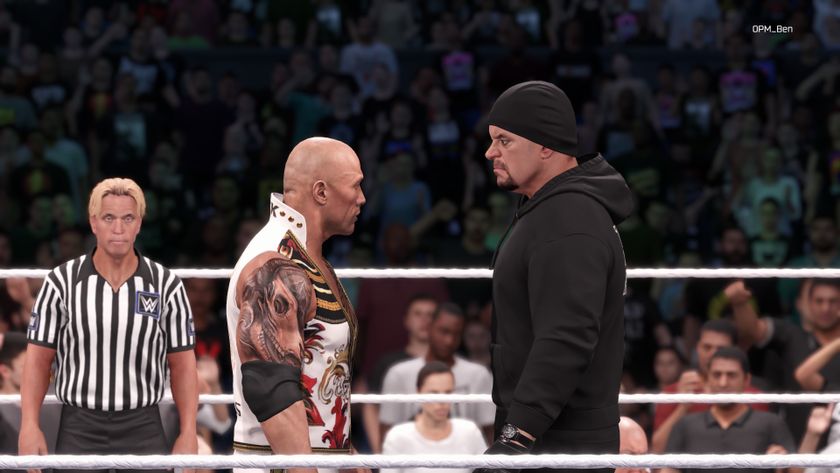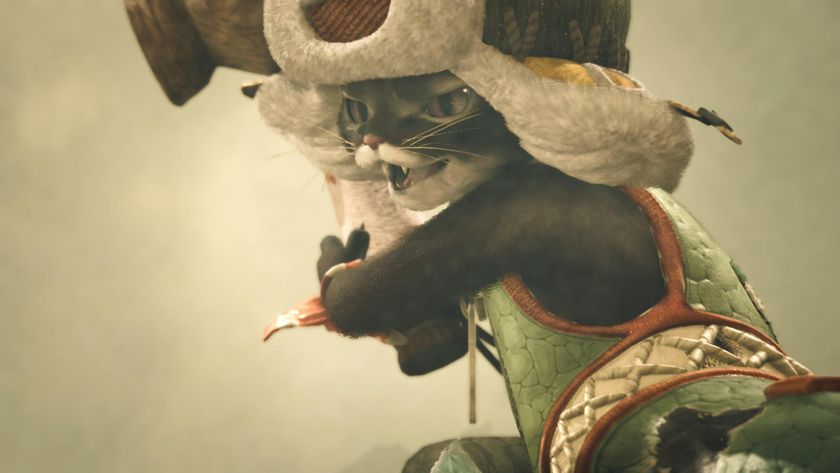Brenda Romero on Empire of Sin: "I'd wanted to make the game for 20 years"
Game director Brenda Romero talks about the inspiration behind Empire of Sin
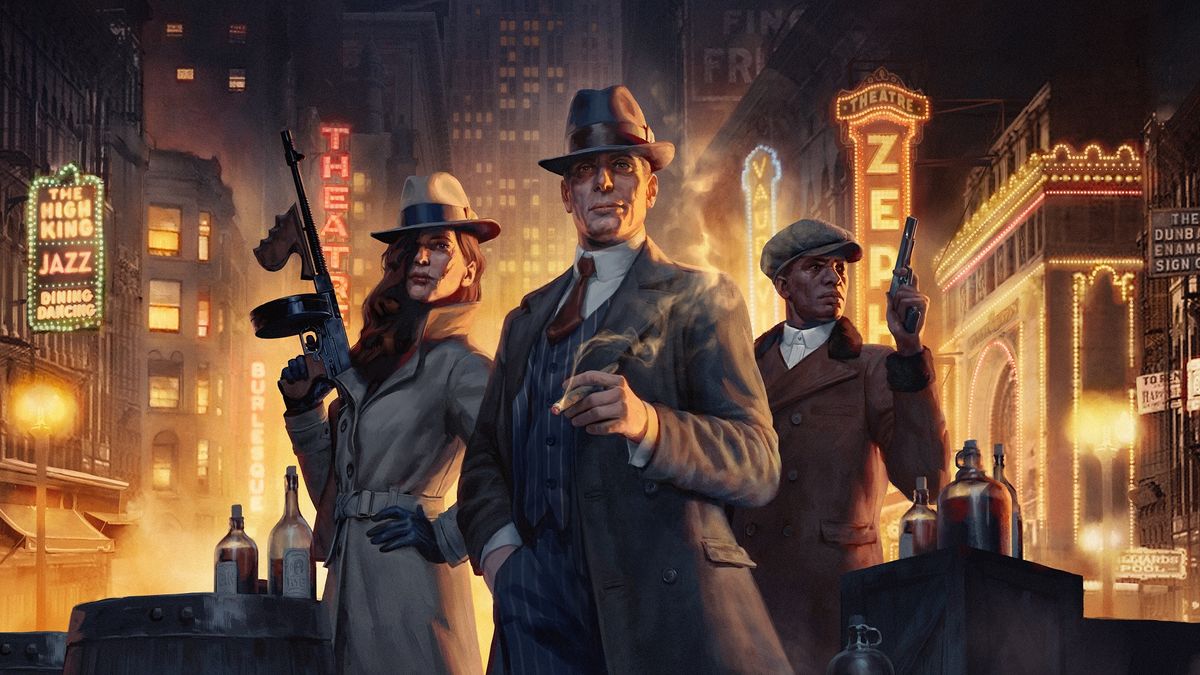
When it came to starting the design process for Empire of Sin, the very first meeting ended up playing out like a game of D&D. The entire team sat around a table with game director Brenda Romero acting like a Dungeon Master. "The very first design meeting for Empire of Sin involved me and the team, and me saying, 'OK, we're in 1920s Chicago. You're a gangster. You've just shown up. What do you do?'" Romero tells me.
At the Romero Games studio in Galway, Ireland, D&D has become a big part of the team's culture. "It was quite literally roleplaying," Romero continues, "and I think that Chris Gregan [Romero Games' chief architect] said, 'I want to rob a bank!' In that single play session, all the verbs of the game were born, which is the easiest way, in my opinion, to start [making] a game."
Set in the prohibition-era, during a time where big personalities were dealing in booze and money – among other things – in Chicago's seedy underbelly, Empire of Sin takes the world of gangsters and organized crime into the sphere of strategy games with publisher Paradox Interactive. You play as one of 14 crime bosses who controls a racket of your choosing – such as running speakeasies or protection rackets, to name a few. As you work to build up your very own criminal empire and increase your influence on the streets of Chicago, you'll have the agency to use any means at your disposal to make it to the top and stay there.
The Place
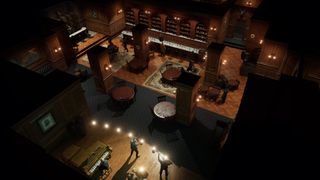
Romero's fascination with the 1920s prohibition began at an early age, and Empire of Sin was born from a life-long passion that was inadvertently started thanks in large part to Romero's mother. "I'd wanted to make the game for 20 years. I've been fascinated with that period of time since I was 8 or 9. I grew up on the Canadian border in northern New York, and it was a big area for rum-running in Canadian whiskey coming from the border," Romero tells me.
"Somehow, I found out that this bar called The Place – literally called The Place – never closed during the prohibition, and they claimed that they were the oldest, continuously operating bar in the US… I remember I was constantly badgering my mother with these questions – because if it's illegal, and you're a cop, [why not] just stop it? I couldn't understand how that was happening. So my mother didn't want to introduce her young daughter to this grey area where law could look the other way, so she wouldn't tell me."
Romero explains that it was all the more complexing to her young self because the bar had large windows and people on the street could just look in and see what's happening. Romero's mother never did tell her how The Place stayed open, "but what she did do," Romero tells me, "is create a lifelong interest in criminal empires."
After two decades of wanting to bring the prohibition-era to life in the world of video games, Romero started piecing how it could come together on, of all places, a boat. "I’ve spent my whole life in the game industry, so I’ve always been like, 'How can I make that period into a game?' I’ve had a couple of iterations, [but] none of them had any real legs. But this one, I spent two weeks on a boat – really! I spent two weeks on a boat, and that's when I thought, "if we put this, this, and this together, then we might have that." The 'that' here is the earliest concept of Empire of Sin as it exists today – a strategy game designed to appeal to a vast audience, stripped of many of the extraneous elements that have been known to over-complicate the genre.
Sign up to the 12DOVE Newsletter
Weekly digests, tales from the communities you love, and more
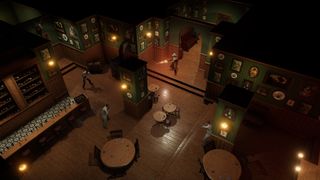
From my own experience of playing strategy games, they can feel quite overwhelming to start with since they often involve lots of overlapping different systems and mechanics. Before we sit down to talk, I wonder how approachable the systems behind running a criminal organisation will be. I take my first opportunity to ask Romero just how easy it is to get stuck into the Empire of Sin, and I'm quick to get some reassurance when Romero explains that the whole team worked to try and make the game feel open to everyone, regardless of their familiarity with the strategy genre.
For example, to make less experienced players feel like they're on-boarded into the game, the team has been working to develop an easy-to-follow tutorial to help you hit the ground running. "We tried to make sure that the tutorial doesn't feel like you're climbing Mount Everest," Romero explains. "There's a lot of tutorials, I find, in strategy games – if there is a tutorial – where you're just like, 'I don't even know I'm in a tutorial, and I don't even know what's going on.'" Overall, Romero and the team hope Empire of Sin will be a "strategy game with enough depth, but it will also have a good ramp to learn that depth".
Big personalities
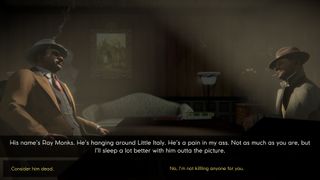
The character-driven experience of Empire of Sin is just as important as the strategy behind it. From researching the setting to looking into the real life figures of the era, Romeo Games is putting a lot of effort and time into creating an authentic-feeling reflection of 1920s Chicago. The sole job of designer Darius Monks, for example, was "digging stuff up" about the setting and time period of Empire of Sin. There was also an intern who wrote newspaper articles based on real events. "Every month, there's a newspaper in the game that has local, national and international news. And it's all real news," Romero teases.
Some of the crime bosses you'll meet are real figures, plucked straight from history like Al Capone and Daniel Mckee Jackson, while others, like the French-born boss Goldie Garneau, are fictional. The team has also spent time researching little-known figures of the era, putting them into the game in an effort to broaden the depth of the experience and to give players an opportunity to expand their knowledge of the era. One such crime boss featured in the game, for example, is Elvira Duarte, a real brothel owner in the 20s who just so happens to be John Romero's great-grandmother.
"So the interesting part about that, we really had to dig. We did a lot of digging to make sure we had that representation there. There was a diverse cast of characters in 1920, as you might well expect. But history tends to remember in a more biased way. So there was a lot of research just to find out who these people were."
Making sure that there was a diverse range of characters, with the likes of Duarte, as well as more more familiar names, was something Romero was keen to include. "While I think sometimes people will be like, 'Oh, you put diversity in the game for the sake of diversity,'" Romero says. "It's like, no, I want to play a female character in the game. I waited until 1987. I started playing games in the '70s. I waited until 1987 to play a girl in a game, and I want to put women in my game."
Having a range of different bosses was also one of the ways Romero hopes to add to the roleplaying aspect at the heart of Empire of Sin. "I wanted to make sure that, in the game, you could look at the game and see yourself. "Oh, you wanted to play that character, because that character was a reflection of you," Romero says.
A product of their time
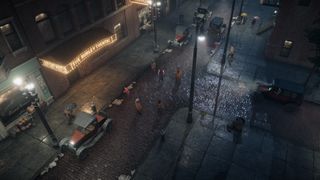
In an era with a very storied history, many of the figures from the time have found their way into popular culture, but Romero wanted to make sure the bosses transcended the "outsized" figures they became in the press, or in movies and TV. "We wanted to make sure the characters were more than just what you see on the screen, and that there was a significant backstory to them."
With a blend of fictional and historical playable figures, and so much research put into the time period, I ask Romero if the characters are also a product of their time, in the sense that they hold certain prejudices about others. "They do, yeah. That was actually a design debate I had within my own head," laughs Romero. "How much did I want to show that?"
"Well, I guess the question is absolutely there," Romero continues. "It's in the game. It's in the data. The question is: how much do I want to surface that? I don't want to play a game and be told that I'm less than, because I'm a woman… Ultimately games are about realizing a fantasy, and having that opportunity."
Just as Romero says, games can help you realize a fantasy, and Empire of Sin is going to let you experience what it's like to take on the role of a crime boss who tries to build up their very own empire. Having spoken to Romero and heard about all of the role-playing and strategy DNA that make up the game, as well as what influenced its creation, I can hardly wait to see just how it brings the prohibition era to life, and how well I'll do in Chicago's criminal underworld when the game releases this Fall on PC, Xbox One, PS4, and Nintendo Switch.
Stay on top of all of the latest releases with our list of all the upcoming games 2020.

I started out writing for the games section of a student-run website as an undergrad, and continued to write about games in my free time during retail and temp jobs for a number of years. Eventually, I earned an MA in magazine journalism at Cardiff University, and soon after got my first official role in the industry as a content editor for Stuff magazine. After writing about all things tech and games-related, I then did a brief stint as a freelancer before I landed my role as a staff writer here at 12DOVE. Now I get to write features, previews, and reviews, and when I'm not doing that, you can usually find me lost in any one of the Dragon Age or Mass Effect games, tucking into another delightful indie, or drinking far too much tea for my own good.
